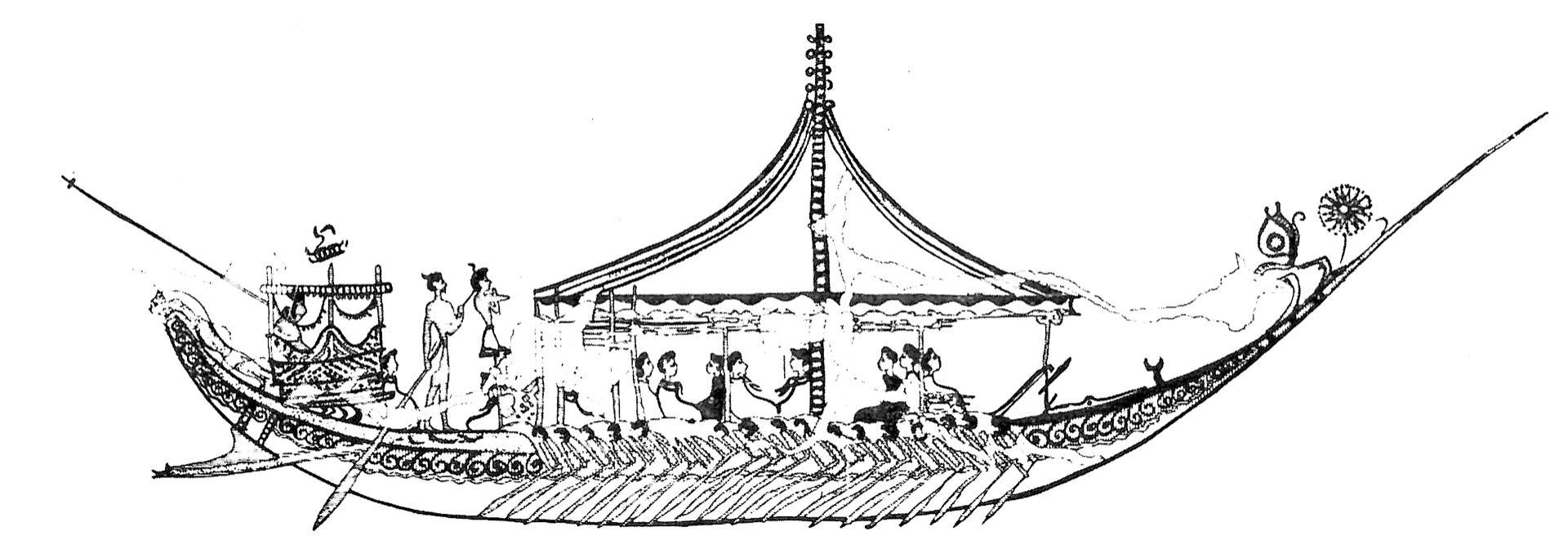Workshop / Summer School
In all regions of the Mediterranean, classical antiquity still today offers numerous references to highlight and discuss the ancient maritime world both in detail and in a broader perspective. As a combination of workshop, summer school and sailing excursion – and open to all fields of classical studies – the event offers an insight into the ancient maritime world of a particular region as well as corresponding overall contexts and developments.

As a workshop, each participant will give a presentation on a specific topic, their own ideas or certain research aspects, which will be presented and discussed in the context of the journey and the places visited. A practice-oriented discussion of the topics results not least from the format of the event as a sailing excursion.
As a summer school, there will be lectures on different topics of ancient seafaring and maritime culture. Practical insights into seamanship and navigation are – of course – also given, as well as an overall insight into the area of nautical conditions and nautical necessities. Participants also take over work and duties on board the ship(s) themselves and thus work out a large part of the journey across the sea on their own.
And as sailing excursion, the event naturally offers a maritime perspective in a variety of ways. Starting with insights into practical necessities of seafaring, to an understanding of coastal places and regions of the ancient (and modern) world, to the opportunities and limits offered by the sea as a formative factor of culture in general as well as in particular.

Main focuses of each event result from the historical sites and developments in the respective region as well as from the contributions of the participants. However, the general approach is to perceive, reflect and discuss historical-archaeological subjects from a maritime perspective.
The event is directed at advanced students, doctoral students as well as postdocs in all fields of classical antiquity. Previous knowledge of sailing – although beneficial – is not required. On board, participation as well as teamwork is expected. Accommodation is on board the yacht(s).
Unlike typical academic courses the event particularly focuses on the contextualisation and practical relevance of maritime aspects and topics. Furthermore and in contrast to increasingly regimented study programmes, the rather unusual setting follows the rather old tradition of discussing scientific topics in a group of students (graduate, postgraduate) as well as PhDs in an open way.
The number of participants is limited by the size of the yacht(s). Participation costs are the pro rata yacht charter. Final routes depend on current wind and weather conditions.

Maritime aspects to be considered can easily be associated by taking a look at the pictures placed here under Gallery. These are for example:
On settlements and coastal areas e.g.: accessibility of the sea, accessibility of the land – coastal settlements and coastal topography – urban areas, their bays, ports and docks – architectural staging and the sea – self-sufficiency and external dependence – threats from and protection by the sea – natural resources and change of landscape.
On sea and seafaring e.g.: nautical and maritime conditions – ships and seamanship – wind, weather and the risks at sea – astronomy and navigation at night – meteorological phenomena – visibility and routes across the open sea – merchant vessels and the sea – πειράομαι καὶ ληΐζομαι – naval warfare and the sea.
On connectivity e.g.: maritime routes and urban settlements – colony, mother citiy and the sea – supraregional sanctuaries and the sea – interregional connectivity and the control of maritime routes – trade, goods and maritime economy – art and culture, their spread and the sea.


